Madness Radio: Voices And Visions from Outside Mental Health explores 'madness' from beyond conventional perspectives and mainstream treatments, featuring survivors, authors, advocates, professionals, and artists.
Hosted by Will Hall, with guest co-hosts Jacks McNamara and Jessica Gallinger, Madness Radio launched in 2005 on Valley Free Radio and aired more than 200 shows since then. We've been broadcast on KBOO in Oregon, syndicated on other stations through Pacifica, and currenrly podcasting on Spotify, Stitcher, iTunes, Pandora, and Google Play. More info on our About page.
Check out the Madness Radio book! Outside Mental Health: Voices and Visions of Madness gathers edited show interviews and additional content, and is available in print and as a free download.
Madness Radio is an affiliate of Mad In America Radio!
Check out www.madinamerica.com. Theme music courtesy Bonfire Madigan. Thanks to past Madness Radio Producers Jenka Soderberg, Nina Packebush, Leah Harris and Jeremy Lanzman. And thanks to our 190+ Madness Radio Kickstarter donors for supporting the show!
Listen to recent shows below or find us in your favorite podcast app, subscribe to be notified of new episodes on the right, browse by topics, search by keyword, or see a list all 200+ shows by date and title, in the archive. (Shorter versions are also available.)
Madness Radio is creative commons copyright! Please copy, post, and share freely. And get involved: send topic ideas, leave comments, ask FM stations to air us, leave an iTunes review, or make a donation.
Bipolar Children: Sharna Olfman
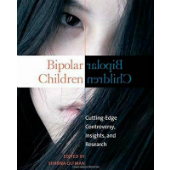
Why are so many children being diagnosed bipolar? Do medications treat disease – or just keep children under control? What else can parents do when faced with difficult behavioral problems?
Sharna Olfman, Psychology Professor at Point Park University and editor of the book Bipolar Children, discusses the growing social and economic pressures to label children bipolar.
http://dai.ly/epbcoO
http://scr.bi/yFfoRN
Podcast: Play in new window | Download (Duration: 50:26 — 46.2MB)
Subscribe: RSS
Amazonian Healing: Metsa Niwue
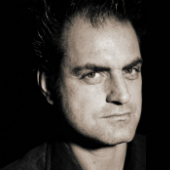
Shamans of the Amazon jungle heal the spirit by communicating with plants and singing people back to health. Can indigenous medicine, including the psychedelic ayahuasca, help anxiety, depression, and addiction? What do healers of Peru have to teach us about mental health?
Metsa Niwue, a curandero who has studied for more than sixteen years with the Shipibo and Quechua Lamista peoples, discusses the promise and potential dangers of traditional Amazonian plant medicine for the west. (transcript)
http://vegetalismo.org
http://www.neip.info/upd_blob/0000/982.pdf
Podcast: Play in new window | Download (Duration: 49:56 — 45.7MB)
Subscribe: RSS
Chemical Crucifixion: Grainne Humphrys
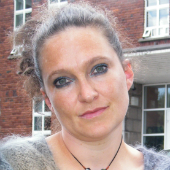
Could a young man’s overwhelming visions of Christ and apocalypse be a creative response to life trauma, rather than signs of paranoid schizophrenia? Does madness unfold differently depending on whether it is supported – or feared?
Irish activist and punk musician Grainne Humphrys, herself a survivor of an extreme state, discusses the campaign for the release of former partner John Hunt. John has been incarcerated and drugged against his will since 2005, sparking international outcry.
http://freejohn-loverevolutionary.blogspot.com
http://www.mindfreedomireland.com
Podcast: Play in new window | Download (Duration: 41:33 — 38.1MB)
Subscribe: RSS
Healing Veterans: Paula Caplan
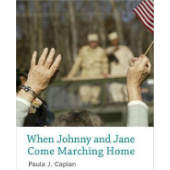
How can we truly help combat veterans facing the aftermath of war? Is veteran trauma a sign of mental illness, or a healthy response to violent situations? Are medications and therapy the answer?
Paula Caplan, author of When Johnny and Jane Come Marching Home: How All of Us Can Help Veterans, discusses healing the wounds of war by listening to the stories of veterans in our communities.
http://whenjohnnyandjanecomemarching.weebly.com
http://www.paulajcaplan.net
Podcast: Play in new window | Download (Duration: 51:35 — 47.3MB)
Subscribe: RSS
Dignity of Elders: Carole Hayes-Collier
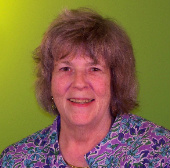
Why are nearly a third of all elders in nursing homes given anti-psychotic drugs, despite life threatening side effects? Are medications being used as chemical restraints? Can nursing homes be places of dignity — or should they be abolished?
Carole Hayes-Collier was diagnosed schizophrenic at 19 and left to a lifetime of hospitalization. When she recovered, the abuses she witnessed inspired her to join the Gray Panthers and dedicate her life to elder rights and mental health.
http://graypanthers.org
http://online.wsj.com/article/SB119672919018312521.html
http://www.canhr.org/stop-drugging
Podcast: Play in new window | Download (Duration: 46:27 — 42.5MB)
Subscribe: RSS
Talking About Suicidal Feelings: David Webb
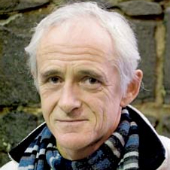
How common are suicidal feelings? Is a psychiatric illness behind suicidal despair — or a meaningful and even spiritual life crisis? Does forced hospitalization really provide help?
Suicide attempt survivor David Webb, author of Thinking About Suicide: Contemplating and Comprehending the Urge to Die, discusses how speaking openly about suicidal feelings, rather than reacting with panic and fear, is the best form of suicide prevention.
http://www.jungcircle.com/DWebb.html
http://thinkingaboutsuicide.org
Podcast: Play in new window | Download (Duration: 50:25 — 46.2MB)
Subscribe: RSS
Physics, Dreaming and Extreme States: Arnold Mindell
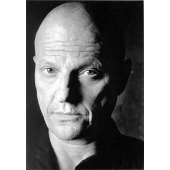
What is reality? Why do people in extreme states feel connected to the universe, and experience uncanny and even supernatural events? Does quantum physics have something to teach us about madness? What if therapists were like indigenous tribal shamans, entering into clients’ “psychotic” worlds as if stepping into a dream?
Arnold Mindell studied with pioneering scientists Richard Feynman and Norbert Wiener and then became a Jungian therapist and founder of Process Oriented Psychology. He discusses his more than 40 years of work with individuals and groups, including people diagnosed with psychosis, and the ancient belief in a purposeful dreaming reality behind everyday events.
http://www.aamindell.net/blog/books#arny
http://www.processwork.org/
http://www.sonic.net/~billkirn/mindell_interview.html
Podcast: Play in new window | Download (Duration: 53:16 — 48.8MB)
Subscribe: RSS
Exporting Mental Disorders: Ethan Watters

How did pharmaceutical giant Glaxo Smith Kline create “depression” in Japan — and a billion dollar market for its anti-depressant drug Paxil? Why do people diagnosed with schizophrenia recover more in Tanzania than they do in the US? Can western-style psychotherapy help tsunami survivors in Sri Lanka?
Ethan Watters, author of Crazy Like Us: The Globalization of the American Psyche, discusses how mental disorders are cultural products, defined in the US and then exported around the world.
Podcast: Play in new window | Download (Duration: 47:46 — 43.8MB)
Subscribe: RSS
Therapy for Psychosis: Daniel Mackler
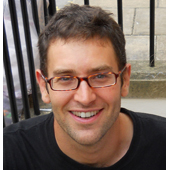
Can therapy reach people in extreme states of “psychosis” — without using medications? Do we need to give a diagnosis to help someone? Why are counselors afraid to listen to their “mad” clients?
New York psychotherapist and filmmaker Daniel Mackler discusses how be defied social work training in his work with people labeled with schizophrenia and bipolar, and what he learned from recent visits to successful treatment alternatives in Northern Europe. Daniel is the filmmaker of Take These Broken Wings and co-author with Matthew Morrissey of A Way Out of Madness.
Podcast: Play in new window | Download (Duration: 49:47 — 45.6MB)
Subscribe: RSS
Meanings of Madness: Gail Hornstein
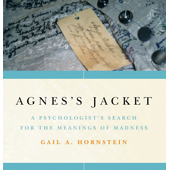
Seamstress Agnes Richter was locked away in a mental asylum in the 1890s, and was so determined to have a voice that she embroidered her personal story onto the jacket she wore on the ward. What is the hidden history of people writing their own narratives of going insane? How important is it to listen to the experiences of “mentally ill” people? Is there meaning in madness?
Gail Hornstein, Mt. Holyoke College professor and author of Agnes’s Jacket: A Psychologist’s Search for the Meanings of Madness, discusses the work of the Hearing Voices Movement in the UK, peer run support communities including Freedom Center in the US, and why professionals should let patients speak for themselves.
http://www.gailhornstein.com
http://bit.ly/aG9bnS
Podcast: Play in new window | Download (Duration: 57:04 — 52.3MB)
Subscribe: RSS
Icarus Project: Sascha DuBrul
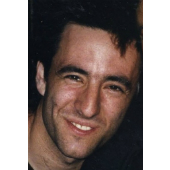
How did the New York underground of punk rock music, squatting, and homeless protest give rise to a thriving and innovative peer-run mental health community? Are there creative gifts to be found in the depths of madness? Does the future of Mad Pride lie in the joining of activism with spirituality?
Icarus Project co-founder Sascha Altman DuBrul discusses his escape into apocalyptic visions and psychiatric hospitals, and how he was inspired to challenge the identity of bipolar disorder.
scatter(at)theicarusproject(dot)net
http://www.theicarusproject.net
Podcast: Play in new window | Download (Duration: 53:43 — 49.2MB)
Subscribe: RSS
Bipolar Medication Myths: Dr Joanna Moncrieff
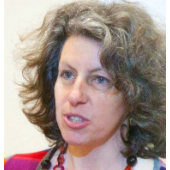
Is bipolar disorder a disease? Can medications like lithium correct chemical imbalances and stabilize mood? Do psychiatric drugs act completely differently on the brain than recreational drugs?
UK psychiatrist Dr. Joanna Moncrieff, author of The Myth Of The Chemical Cure: A Critique of Psychiatric Drug Treatment, discusses how seeing psychiatric medications as treatments for disease misleads the public about how they actually work, and obscures their potential for abuse as tools of social control.
http://www.critpsynet.freeuk.com
http://www.academyanalyticarts.org/moncrieff.htm
http://www.mentalhealth.freeuk.com/howwork.pdf
Podcast: Play in new window | Download (Duration: 51:41 — 47.4MB)
Subscribe: RSS
Schizophrenia and Black Politics: Jonathan Metzl
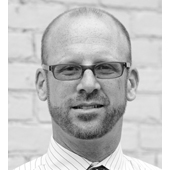
How did the definition of schizophrenia change during the civil rights and Black Power era of the 1960s? Why did a disease primarily affecting withdrawn white housewives suddenly become focused on angry and “paranoid” African American men instead?
Psychiatrist and historian Jonathan Metzl, author of The Protest Psychosis: How Schizophrenia Became a Black Disease, discusses racism and social control in psychiatric diagnosis, and how Black protest was turned into a mental disorder and psychosis was a political tool.
jmetzl(at)umich(dot)edu
http://bit.ly/byOeIw
Podcast: Play in new window | Download (Duration: 52:03 — 47.7MB)
Subscribe: RSS
Open Dialogue Alternative: Mary Olson

Is a ‘psychotic’ crisis inside one person’s mind — or does it happen between people, in their relationship? Can therapy untangle the web of madness by addressing the family, providers, and entire social network?
Smith College social worker and Fulbright scholar Mary Olson discusses the innovative work of Jaakko Seikkula and colleagues’ Open Dialogue Approach in Finland, which has achieved dramatic success helping people through extreme states labeled ‘psychosis’ and ‘schizophrenia’ — while relying much less on medication and hospitalization.
http://www.dialogicpractice.net
http://beyondmeds.com/2010/01/04/alternative-for-psychosis
http://www.willhall.net/opendialogue
Podcast: Play in new window | Download (Duration: 53:16 — 48.8MB)
Subscribe: RSS
Violent Voices: Erica van den Akker
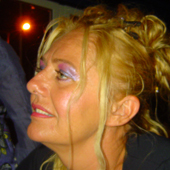
People who hear voices are no more violent than anyone else — but what about the small number of voice hearers that do actually commit violent crimes? Are medications and locked wards the best way to help those who act on their aggressive “command hallucinations?” What is the relationship between trauma, violence, and voices?
Dutch psychiatric social worker and Hearing Voices Movement member Erica van den Akker discusses her innovative counseling work with violent offenders in the Netherlands.
alpouvar1(at)tomaatnet(dot)nl
Podcast: Play in new window | Download (Duration: 48:28 — 44.4MB)
Subscribe: RSS


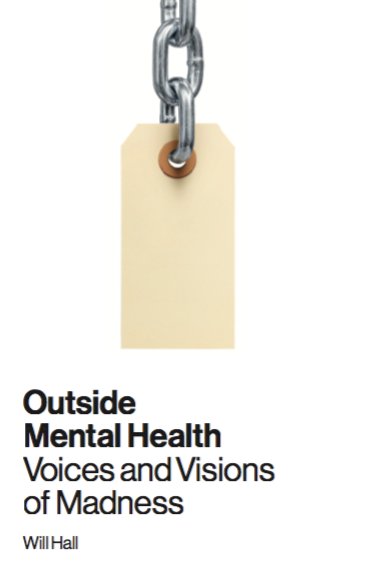
























 Creative Commons 2.5 copyright
Creative Commons 2.5 copyright
Recent Comments